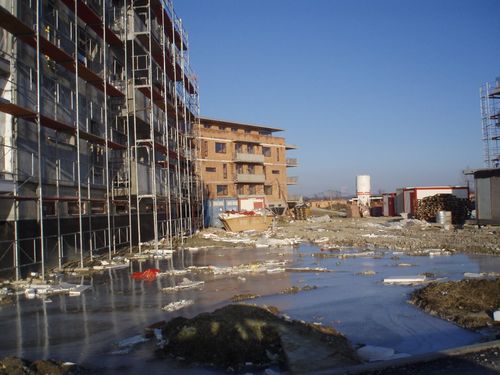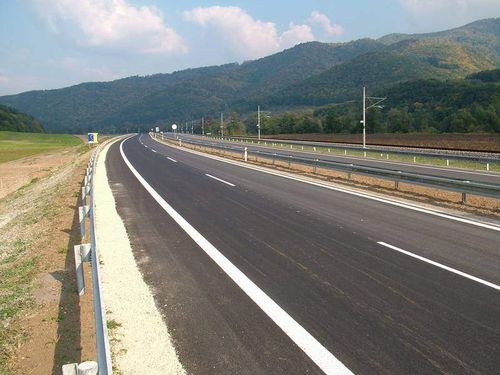New Building Act – catalyst for the approval proceedings
The need for accurate and reliable information has been mentioned not just by architects, but also by foreign investors for a long time. Unfinished or constantly changing zoning plans and the resulting long delays in the zoning proceedings demonstrably cost them money, while the continuously postponed urbanization pushes the prices of sites down. However, Wednesday did not bring the long expected turnover. The Slovak government interrupted its discussion on the draft law on zoning proceedings and building regulations – Building Act without any serious objections, arguing that it is essential to meet the representatives of the Association of Towns and Villages of Slovakia. Before that it agreed with their requirement to leave, within the framework of transfer of public administration competencies to local governments, the competency of the building authority fully to the municipalities, and to city districts in Bratislava and Košice.
The Slovak Ministry of Construction and Regional Development was somewhat less lenient to the obligation to prepare a municipal zoning plan. Until now this obligation applied to municipalities with over 2,000 residents, the new Building Act conveys it also for 562 municipalities with a population of 1,000 to 2,000, of which 432 had their own zoning documentation at the end of last year. This clearly shows that by 2015, 130 municipalities will have to create their zoning documentation, otherwise the zoning proceedings would not be simpler for them.
Lower administrative demands
The preparation of the new Building Act, which should supersede the currently valid Act in force from 1976, except for the concept of foreclosure, has taken about nine years, with several interruptions, and has been accompanied by a lengthy comments procedure. The boss of the submitting Ministry Marian Janušek described it as “one of the toughest laws prepared during this term” and suggested to postpone its effective date (because of the approximately 30 related decrees and implementing regulations) from 1 July 2009 to 1 July 2010.
The proposed Building Act brings huge changes to the applicable legislation, necessitated by the complicated times and the practice of building proceedings. Its major impacts are as follows:
- It brings a complex solution to the zoning process, building regulations, state building supervision and sanctions for breaches of building discipline;
- It reduces the administrative demands of approval proceedings based on the new differentiation of buildings, taking into account their building and technical requirements;
- It simplifies and shortens the whole building permit process.

What will these changes bring in practice? For example buildings with a permit will be only subject to the notification duty, while buildings with the notification duty will not require any notification any more. In contrast, the upper limit of sanctions for illegal buildings and flagrant breaches of the Building Act (building without a building permit, in protected areas or protected zones) is increased up to EUR 350,000. If these offences are repeated in the course of a year, the sanction is increased to twice the upper limit. However, the government’s Legislative Council rejected to classify illegal buildings as a crime and to impose even harsher penalties. The Ministry therefore does not give up the Building Inspection Act, which could serve as certain “building police”.
Auditor to cover a range of expert activities
The new concept of building auditor should be new in our country. This will be a natural person – expert in construction, who will perform his activities on the basis of a contract with the building or the building authority and at their expense.
According to the draft, the building auditor has to:
- be on the list of building auditors of the Ministry of Construction (the entry shall be valid for 10 years),
- have a university degree, level 2, construction or architectural specialization,
- have at least 10 years of practice in designing or expert management of building implementation, or
- be an employee of a technical university, research institute, scientific institute or building authority,
- take a specialized course and pass tests in professional qualifications,
- have a licensed trade under a specific regulation,
- have a state certificate issued by the respective Ministry.
The auditor’s fundamental powers and obligations include:
- issue certificates to permit buildings,
- make contracts with the building investor,
- settle all administrative matters,
- supervise over building implementation in accordance with the building permit,
- make inspections, including the final inspection of the building,
- issue an expert opinion on the possibilities of use of the building.
The building auditor should not therefore be a purposeless position, but a practical and highly needed institute that will secure and cover a whole range of specialized activities, until now distributed among several professions. Since the continuity between supervision and building management has not been solved in Slovakia yet (and there are only few cases when the future managers participate in supervision or when the developer also becomes the manager), the auditor is expected to provide a more efficient monitoring of the quality of work on site. Since work passed off as top-quality has often had little to do with real quality in our country so far, this gives us hope that construction companies will finally make sure to provide really good building services.
And what is specifically interesting and important: avoiding conflicts of interest. The auditor will not be permitted to audit his own building operations and buildings in which a person close to him participates as a builder, owner or user, and also buildings designed by the auditor or persons close to him.

Foreclosure only under four conditions
Since there have been too many cases of unclear legal interpretation of public interest and inviolability of ownership rights in recent years, the Ministry prepares, in addition to the new Building Act, also a specific law on land and building foreclosures. This law should accurately list the conditions, procedure, consequences and compensations for foreclosures. The act of forced (involuntary) restriction or withdrawal of the ownership right would be only permissible if its goal cannot be achieved by agreement. The foreclosure as such should be legal only if “four conditions are met together”: based on the Constitution and the law, in public interest, in inevitable scope and for a reasonable compensation.
A compensation for the subject of foreclosure should be specified anew; it has to contain the principle of equity and the moral value of the foreclosure right as well as any secondary financial costs incurrent due to or in connection with the foreclosure proceedings (removal of agricultural products to another piece of land). To guarantee that the foreclosure proceedings are not prejudiced and are objective, the law proposes the proceedings to be conducted by a public authority – namely the regional building authority. The court should decide on the issue of a remedy against the foreclosure. According to the proposal, the foreclosure law should come into force along with the new Building Act, i.e. on 1 July 2010. Out of the 121 comments, its submitter is said to have accepted 88.
The issue of the new Building Act will be also the subject of one of the panels at the 5th Specialized International Conference of Stavebné fórum.sk – Real Estate Market > Slovakia 2009, Trade Fair of Investment Opportunities, which is set for 24 March 2009 in the conference hall of the Radisson SAS Carlton Hotel in Bratislava.



 Jagg.cz
Jagg.cz Linkuj.cz
Linkuj.cz Google Bookmarks
Google Bookmarks Live bookmarks
Live bookmarks Digg
Digg Del.icio.us
Del.icio.us MySpace
MySpace Facebook
Facebook